The goal of this review is to show what kind of frame coverage flash diffusers deliver. Any flash reflector or diffuser should be capable of even illumination of the scene when you shoot with, say, 100mm lens (on-camera flash). The things are different when you put a wide angle lens on. You can run into various types of light falloff. The falloff can be used creatively, but there are applications where you do want your scene to be evenly illuminated (for example, architecture shooting, wide-angle group shots, full length wide-angle portraits, etc.).
So, what diffusers are good for those kinds of wide angle shots? How wide can you go with a particular diffuser? We tested a number of flash diffusers and reflectors available on the market today. The list below will be extended over time, as we get more diffusers to test.
For the most versatile flash diffuser, please refer to The Best Flash Diffuser review.
All test images were taken outdoors, at night. The flash head was pointed to the sky, so there was no "bounce" component of the light (not applicable for the "direct" type of diffusers, like a softbox). Using the diffusers indoors may render different results, but the "direct" light component will be similar to what you see in these outdoor tests.
To test, we marked a vertical wall at the positions corresponding to the various angles of view (13mm, 14mm, 15mm, 21mm, etc.). The flash was placed at a 6 feet distance from the wall. The height of the flash stand was 6 feet. The flash power was set on manual. For the majority of the test shots, the power values were identical. However, to achieve similar exposure of the center of the wall, some of the images were taken with a different power setting. Also, some images were exposure corrected in the post-processing. Thus, it should be easier to compare the results. The difference in the exposure is denoted in the comments for each image.
|
Attaching to flash: narrow side Flash head: vertical Flash zoom: 50mm Exposure compensation: 0 stop Reflector position: 90 degrees Diffuser position: vertical |
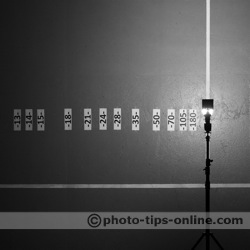 |
|
Attaching to flash: narrow side Flash head: vertical Flash zoom: 50mm Exposure compensation: 0 stop Reflector position: 90 degrees |
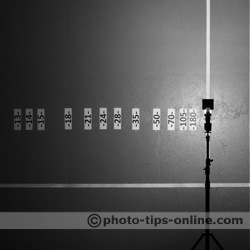 |
|
Attaching to flash: wide side Flash head: vertical Flash zoom: 50mm Exposure compensation: 0 stop Panels position: 30 degrees forward, 20 degrees sideways |
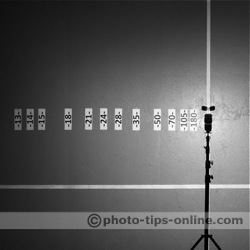 |
|
Attaching to flash: wide side Flash head: vertical Flash zoom: 50mm Exposure compensation: -1/2 stop Panels position: 45 degrees forward, parallel |
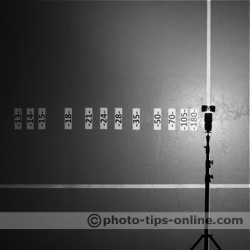 |
|
Attaching to flash: wide side Flash head: vertical Flash zoom: 50mm Exposure compensation: +1/2 stop |
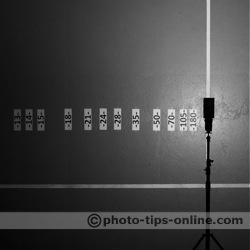 |
|
Attaching to flash: wide side Flash head: vertical Flash zoom: 50mm Exposure compensation: -1/2 stop |
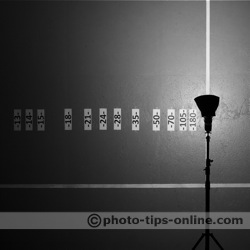 |
|
Attaching to flash: narrow side Flash head: vertical Flash zoom: 50mm Exposure compensation: 0 stop Reflector type: Mega Reflector position: 90 degrees Reflector orientation: vertical |
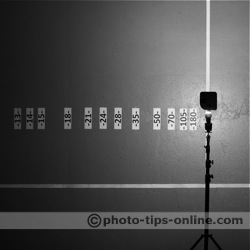 |
|
Attaching to flash: narrow side Flash head: vertical Flash zoom: 50mm Exposure compensation: 0 stop Reflector type: Mega Reflector position: 90 degrees Reflector orientation: horizontal |
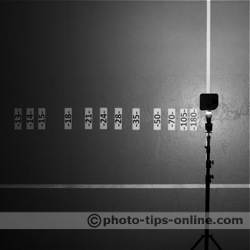 |
|
Attaching to flash: narrow side Flash head: vertical Flash zoom: 50mm Exposure compensation: 0 stop Reflector type: Super Reflector position: 90 degrees |
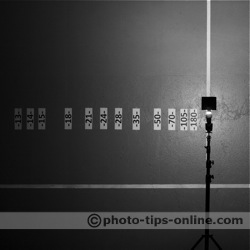 |
|
Attaching to flash: narrow side Flash head: vertical Flash zoom: 50mm Exposure compensation: 0 stop Reflector position: 90 degrees |
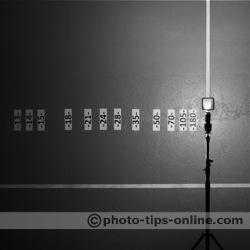 |
|
Flash head: direct Flash zoom: 50mm Exposure compensation: -3 stop |
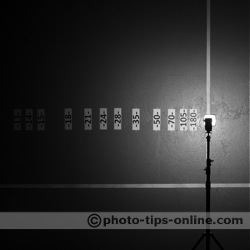 |
|
Flash head: direct Flash zoom: 50mm Exposure compensation: -2 stop |
 |
|
Flash head: direct Flash zoom: 50mm Exposure compensation: -2 stop |
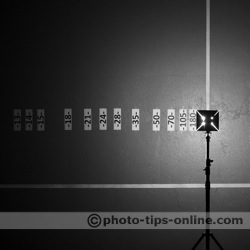 |
|
Attaching to flash: wide side Flash head: vertical Flash zoom: 50mm Exposure compensation: -1 stop |
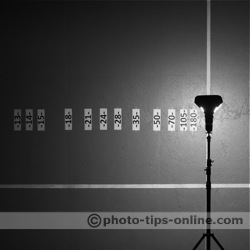 |
|
Attaching to flash: narrow side Flash head: vertical Flash zoom: 50mm Exposure compensation: -1 stop Doors:closed |
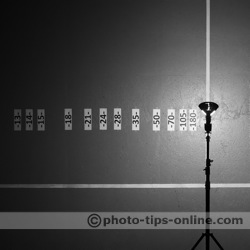 |
|
Attaching to flash: wide side Flash head: vertical Flash zoom: 50mm Exposure compensation: -1 stop Attachments:white reflector |
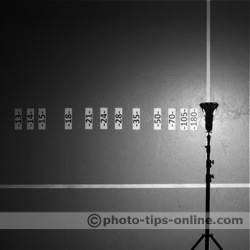 |
|
Attaching to flash: wide side Flash head: vertical Flash zoom: 50mm Exposure compensation: -1/2 stop Attachments: white reflector, diffuser |
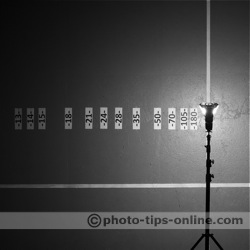 |
|
Attaching to flash: narrow side Flash head: vertical Flash zoom: 50mm Exposure compensation: 0 stop Reflector position: 90 degrees |
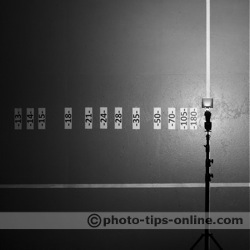 |
|
Attaching to flash: narrow side Flash head: vertical Flash zoom: 50mm Exposure compensation: 0 stop Reflector position: 90 degrees |
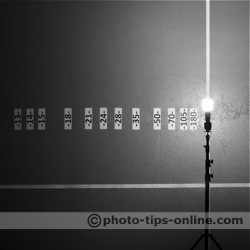 |
|
Attaching to flash: narrow side Flash head: vertical Flash zoom: 50mm Exposure compensation: 0 stop |
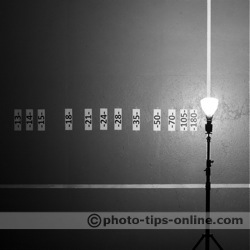 |
|
Attaching to flash: wide side Flash head: vertical Flash zoom: 50mm Exposure compensation: 0 stop |
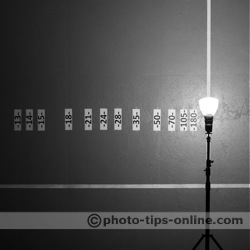 |
|
Attaching to flash: narrow side Flash head: vertical Flash zoom: 50mm Exposure compensation: 0 stop Flaps position: closed |
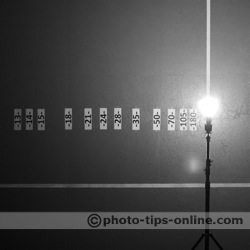 |
As you can see, for all tested diffusers, it is not a problem to handle the 50mm angle of view both, horizontally and vertically. This is sufficient for most portrait type applications.
Getting closer to 35mm, some diffusers start to show a light falloff. For example, Honl Photo Speed Reflector demonstrates some light falloff in the horizontal reach and the lower portion of the frame while having plenty of light in the upper area. Tilting the reflector forward "fixes" the lower area, though.
LimuQuest Softbox III illuminates the scene reasonably well up to 28mm angle of view (in all directions). There is a typical hot spot in the center, but not very pronounced.
For the full length wide angle portraits you may want to chose PRESSlite Vertex, LumiQuest Big Bounce, LumiQuest Quik Bounce, or LumiQuest ProMax System, as they provide good coverage of the lower portion of the frame.
For the wide angle architecture shots, the best choice is probably Demb Mega Flip-it! with the Mega reflector. It covers a pretty wide area in all direction. There is some light falloff at the bottom of the frame that, again, can be compensated by changing the angle of the reflector.
Finally, the widest frame coverage is delivered by PRESSlite Vertex in the "wide spread" configuration. It goes up to 21mm angle of view, and even at 18mm, there is no significant light falloff. The vertical range is limited, though, which may be an issue for architecture image taking.
Please don't forget that these tests are taken in a predetermined setup. Having bounce surfaces around or changing configuration of a diffuser (for the units that offer multiple configurations) can change the outcome significantly. The content of this article, however, should be able help you better understand the capabilities of your diffuser.